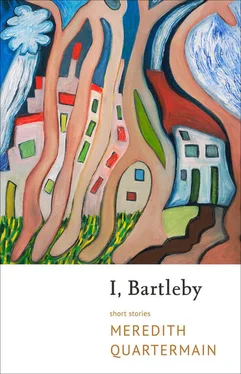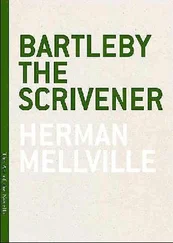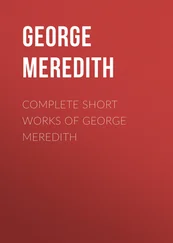The day stretches into a long, straight line the ends of which, like an ever-expanding universe, are travelling faster and faster apart as time goes on. Time that oozes in molecules from coffee break to lunch, from lunch to coffee break, from break to never-never-to-be-reached end of day. You will not look again at the clock. You must be busy, you must work at your job. You must be polite and always smile and talk about your evening or your weekend even though you already told them about watching TV or reading a magazine. You want to be one whom the patients can speak to, be worthwhile as the ones at the computer, the ones the doctors talk to, the ones who understand the doctors’ orders. Oh, please, what can I do ?
The one who’s training you tells you to make a list of all names and phone numbers in a box of files. Writing by hand. Aaron Lee number, number… and numb-er, Theresa Sanderson number, number… and number, rounding the a ’s and d ’s and o ’s, spacing the r and the e and the s . Making three-humped m ’s and two-humped n ’s. In grades three and four you traced them on dotted lines — round and up and down and along to the back of a k . You copied stories and poems and capital cities from the blackboard. You rested your head on your left arm down on the desktop, the tip of the pen inches from your eyes, swinging up and down, shooting off the line then zigging back and round to touch the line and shoot up the stick of a d or sweep into the tent spire of a j diving below to loop its tail, stopping for its dot — each letter sailing away then back like a boomerang to the line. Waves and waves of letters. No longer school, no longer teachers and rows of other children, no longer rulers and principals — just you and the pen between the lines.
Vaguely you hear the word casualty . Are you all right? Yes yes. I’ve always written with my head down, even when I was in grade four. The teacher always asked. The patient leaves and the senior clerk talks about the public space of the front desk; everything you do makes an impression. The clock says five minutes to five.
he stands on the sidewalk, leaning against the wall of his building, which is not the place he owns but rather the place he has come to. A room. A hot plate. A toilet down the hall. He brings the cigarette to his lips and draws smoke into himself, feeling it swirl in his head, into that manliness — that sureness of himself — that always came with a cigarette. Like he was on the job. When he had a job. With Nick and Derrick and Zoltan. He clamped down logs, shot them into bark-ripping teeth, squared them into cants, ratcheted them through blades, flipping clean, white boards to conveyor belts. Have to know computer language if you want that job now.
Market music sings in his ears from the open stalls of Chinese dried shrimp, red and green beans, curly black stuff on bark he used to saw. Old man rolls his cart to his everyday spot on the corner. Must have a family, a son’s business around here, sending him out with his fold-out seat and steaming bundled leaves, keeping him busy when he’s no longer really needed. What do they taste like? White van drives right through the red light, turns left on red! — woman driver, go figure. Another woman — looking at him — stands beside leaf-bundle man, waiting to cross. Stare back. Why should she look at him? With her city-clean jeans and buckley boots. It’s his street more than hers. He lives here. She’s only walking through from the rich houses past the tower blocks and the school. Some of them dumps, but they’re still houses, with separate walls from other houses. Houses with kitchens and bathrooms and no one banging and cussing at night. No one punching. No one puking in the hall. The light’s changed. She’s looking at the green, not at him. She’s crossing between the lines.

She’s writing about him. She’s glimpsed him on a street corner. Snapslotted him into neural fibre, transported him through synapses in her arm to her wrist and knuckles to wiggle him out on paper through a tiny metal rod. Her snake trail bumps, dots, and loops along between lines running out from small holes around a coil of wire, reminding her of lie-detector styluses or the scratching of machines that measure earth tremors and heartbeats. Is she then part of a machine or perhaps an organism that measures slight quakes and shunts of tectonic plates? Part of a pulse-taking circuitry picking up radio waves and translating them to a line of camels walking nose to tail across the desert of her page. Their hoofprints disappearing in shifting sand as though she’d washed the ink under a running tap till it faded to hazy stains.
What lies was her stylus detecting? She refused to write about him from the outside. Refused to place him in the world of her thoughtless glances and no doubt classist assumptions about men of sixty or so who lived in the brick blocks of single rooms above Chinatown merchants selling sacks of dried shrimp, raw peanuts, cloud ear fungus, sea urchins, and black-eyed beans. Attended by foraging pigeons waiting for the guard to turn her back. No — this descriptive impulse must be checked. Unless she slipped into his thoughts. His sightlines back to the man with the cart selling steamed packets wrapped in leaves. Her I no longer present in the writing — her I disappearing into his I — an impertinent impersonation. An I which she gives to you like a cloak of invisibility.
Whatever it was the Chinese calligrapher said with her brush strokes, it was not something she said quickly. This stroke horizontal. Cut that into two arms with a dash upward of the same length blown forward by a strong wind. From the belly of the dash, stroke down a short leg plunging ahead into the wind. Branch a bold shelf off the leg, elbowing downward to end in a hook. Finally slash upward ramming an iron spike between leg and hook. No good rushing, thinking of what the brush strokes mean or thinking of lunch or the next character. Each stroke must signify its own speed and weight, as it carves, in the eagle’s view, buffalo pounds of white space. No use being ridiculously careful, mincing and stinting the ink, trying to keep brush strokes alive, trying to make sure it all stands for something, make sure it carries her away on its magic carpets from the meaninglessness of doing nothing, of standing for nothing, promising nothing, of promising no ticket to goodness and rightness.
As though we are to life as words to meaning, a matter of reference, we signifiers and life a distant signified, rather than fractals of intercellular space returning like molecular jungle gyms in the marks of sense and frames of mind that captivate us. As though making our mark takes place on a white page in a vast notebook and diary that began with the big bang — each footprint of each member of each species recorded infinitely for each to read of each of all of the others.
And so we word-bodies walk our word-legs in a language we can’t speak. We stand for our brush strokes. We kick at tyrants. Our ink stains resist like wax in batik. We bear scars of our spelling mistakes. We set out each day with helmet, shield, and sword — the girls we love. We can’t stop. Can’t put down our pens. We’ll always love how they twist away from us fantastic windmills. We can’t imagine a time when we will no longer set out, no longer resist, no longer love to follow their rhizomatic cartwheels, to mark our time in the arms of such siren readers.
Читать дальше













